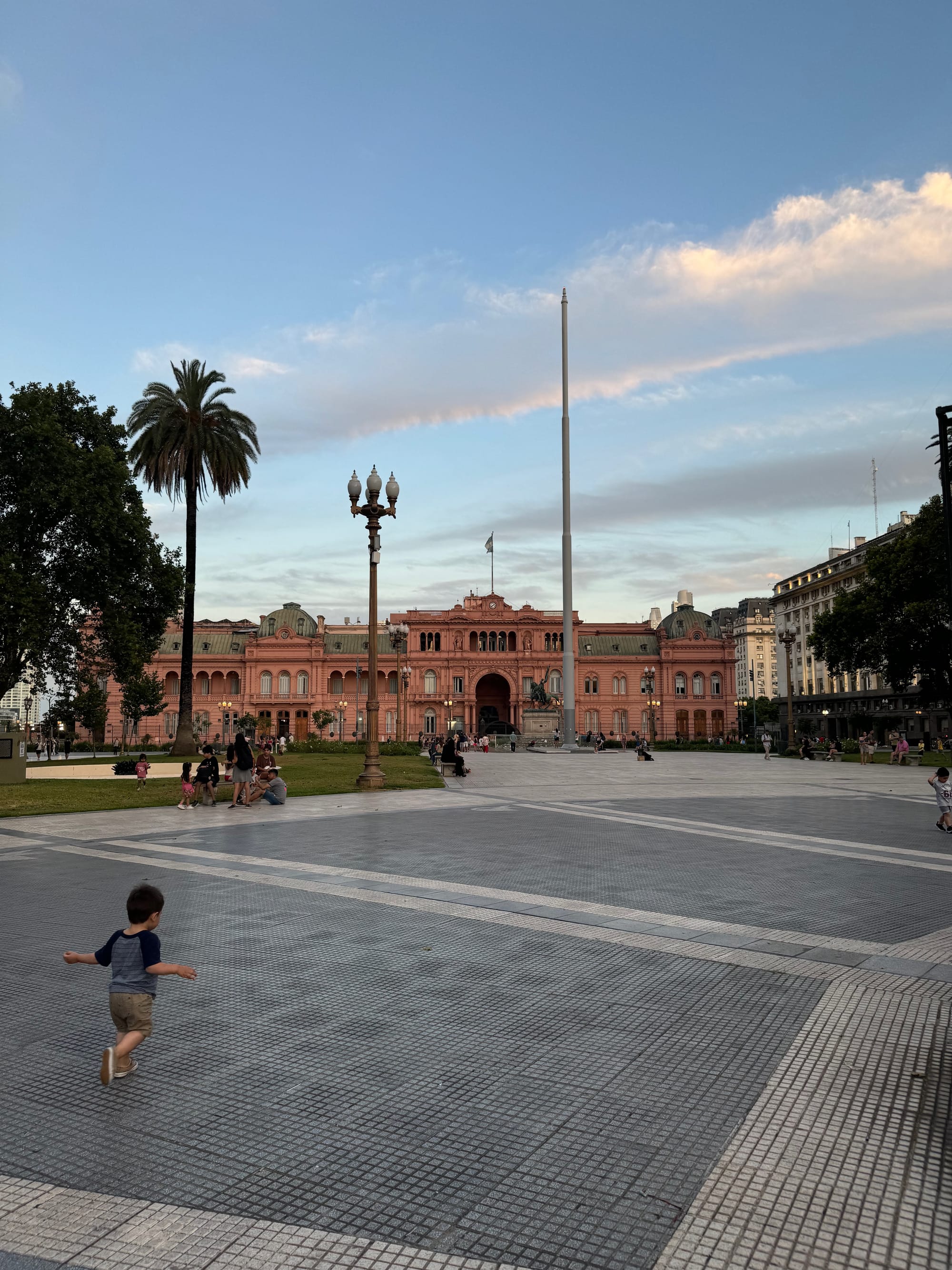Nomading in Buenos Aires

I don't think I've met a person who didn't enjoy Buenos Aires before I travelled there earlier this January. The city has grown in the spotlight in the early 2020s. Not that it was not popular before, but due to hyperinflation and challenging economic situation in the country, living in Argentina, earning in dollars or euros, and spending in pesos has become incredibly appealing. So-called geoarbitrage. This resulted in tens of thousands of digital nomads from the USA, Canada, EU, and other countries moving to the Southern hemisphere.
But the times have changed since. The office was taken by libertarian president Milei, Argentina became the Campeón del Mundo, so how does this reflect in the city? How has life changed not only for nomads, but for locals? Is this still the place to be, a place to start a new life? Here are my honest thoughts after spending 4 weeks in January 2024.
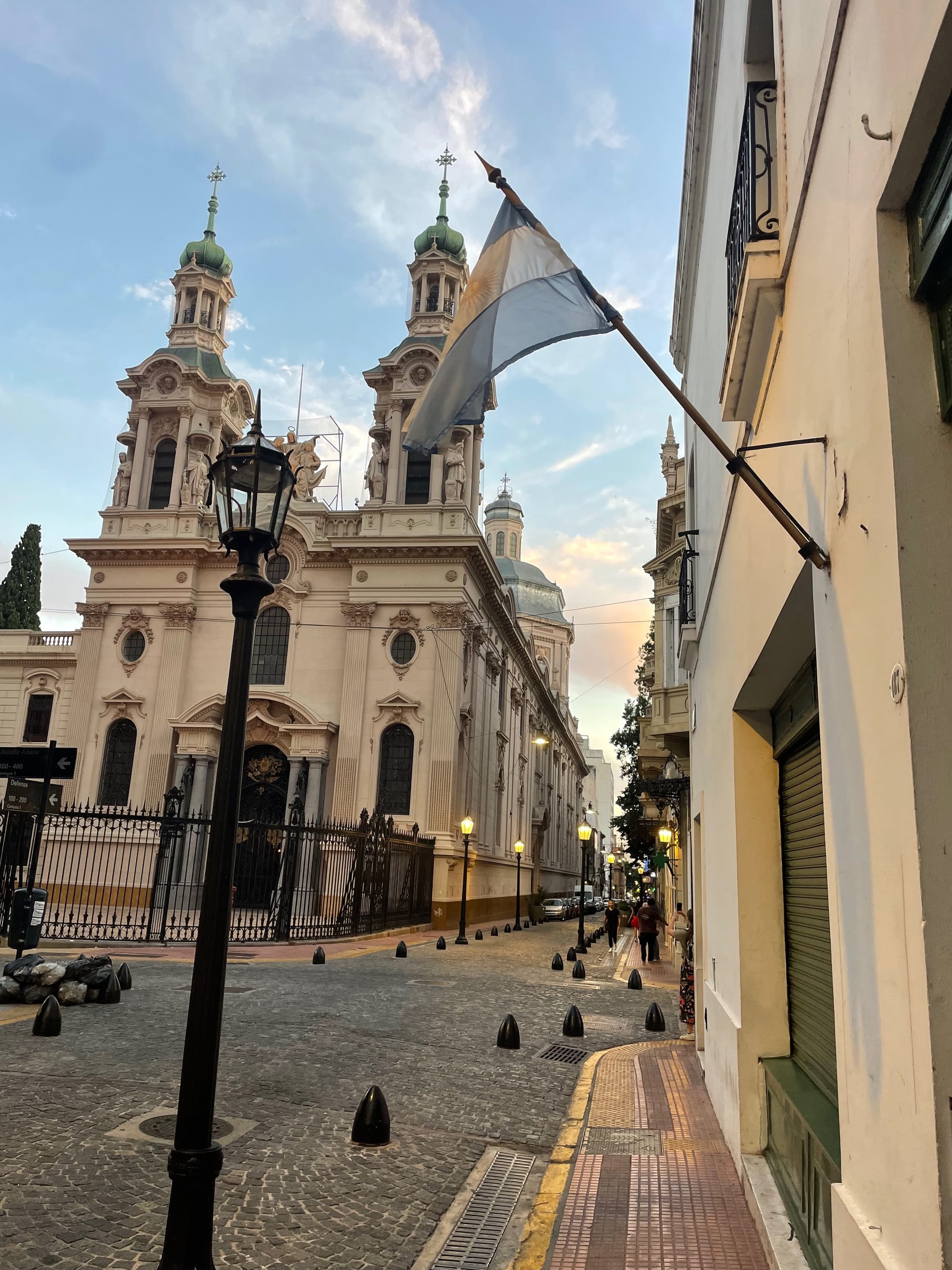
What brought me to "Capital Federal"?
Somehow, this city and Argentina always sat very high on my bucket list. From a young age, I was watching the games of Albicelestes, saw the infamous "La mano de Dios" moment countless times, read Diego's biography, but more then anything - I was fascinated by Argentine history. This country, not so long ago, used to be richer then Western Europe. In 1913, Argentina was ranked 10th globally in "per capita net income". That's just 112 years ago. Growing up, history feels so distant. The older we get, at least the more recent history feels incredibly recent, don't you share this feeling?
During Argentina's days of glory, over 6.5 million European immigrants sought their home in this country, hoping to find work, happiness, and a place to start their new life. Italian & Spanish were dominating nations but so were the French, Poles, Russians, Germans and Austro-Hungarian nations (these include the Czechs, Slovaks, and Balkan nations)
Even a stroll through the famous Recoleta cemetery, you will find family tombs with some of the Slavic surnames. A story that embodies this wild movement for me is Slovak's famous writer, Matej Bencúr, who immigrated together with his Croatian wife down to Puntas Arenas in Patagonia.
Struggling with your double career? Well, think that until this day, while kids in Slovakia are learning about his poetry at high school, in Chile, there is a hospital bearing his name, as he was a doctor by profession.
Important to note that these migration waves took place before WWI and were economically motivated. In those years, Argentina was known as a super-exporter. Argentine meat was a known delicacy worldwide. While in the short term, this provided a tremendous opportunity, in the long term, the overreliance on exports hurt Argentina. The city of Buenos Aires, was at the heart of this transformation. Walking through the city, you can spot fabulous European-like buildings and clock-towers, tons of green in the public parks, and something in between.
The city itself had to be founded twice in its past and has grown significantly in the 19th century and became the first city in Latin America to introduce subway. But how is life in this 17 million metropolis in 2025?
Let me look at it from the perspective of foreign expats coming through my 5C framework.,
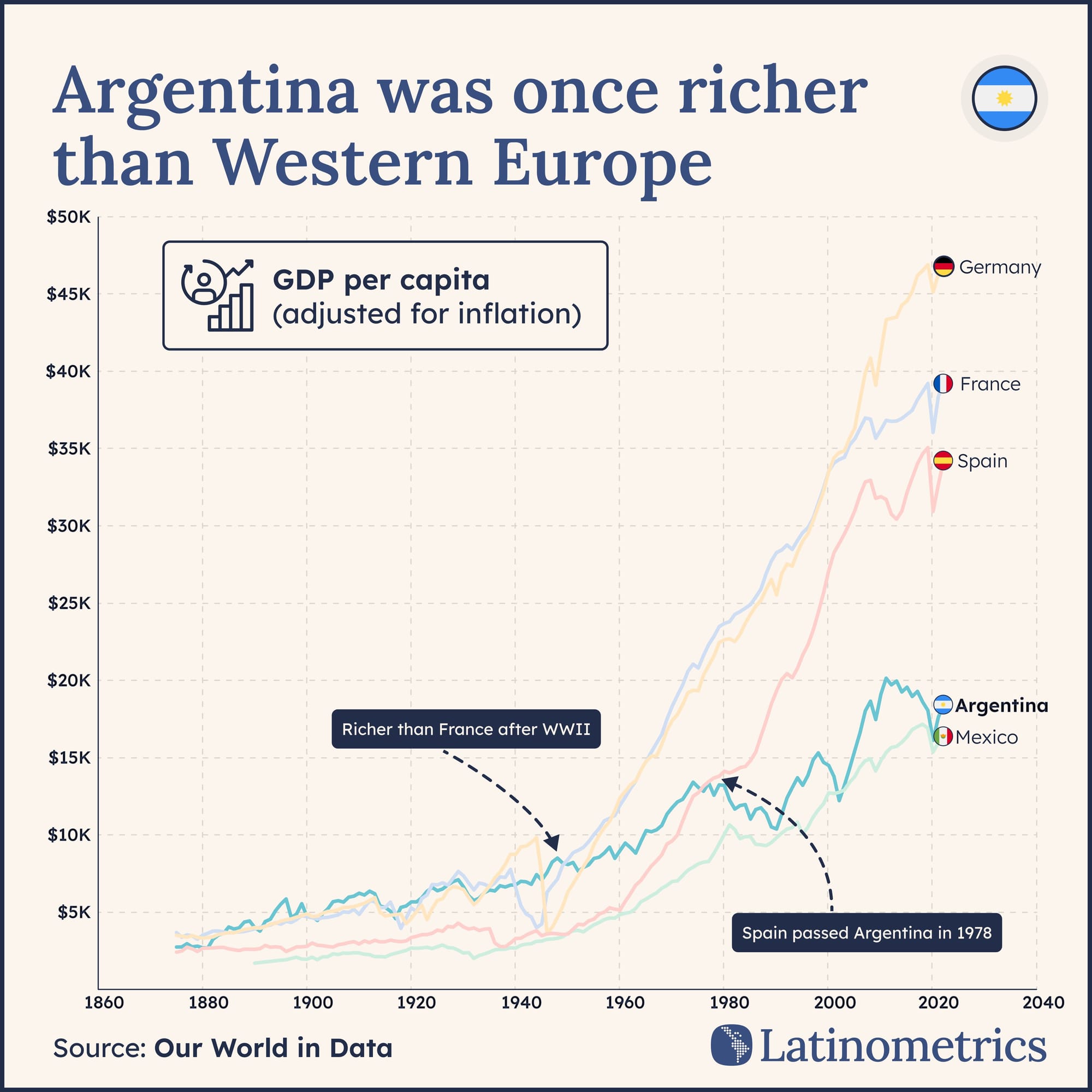
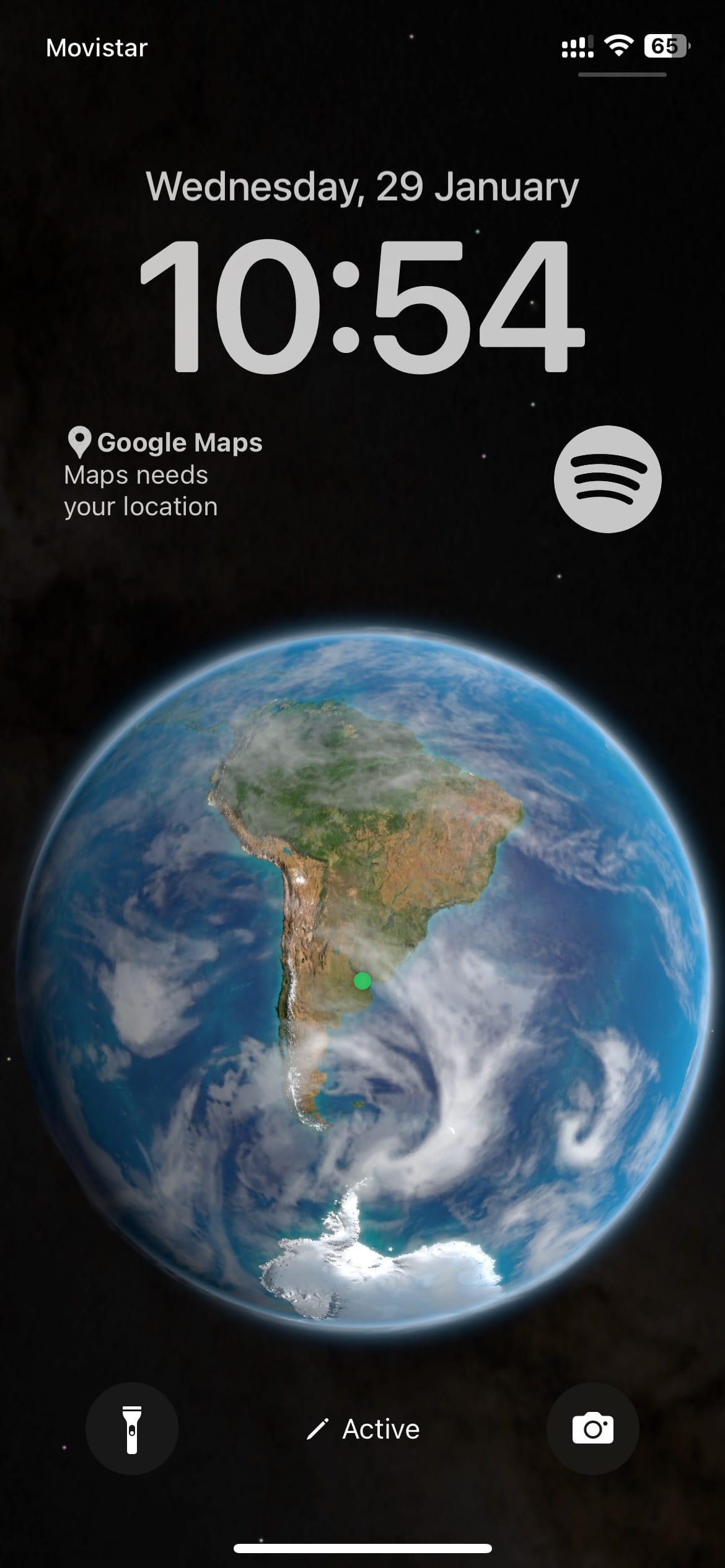
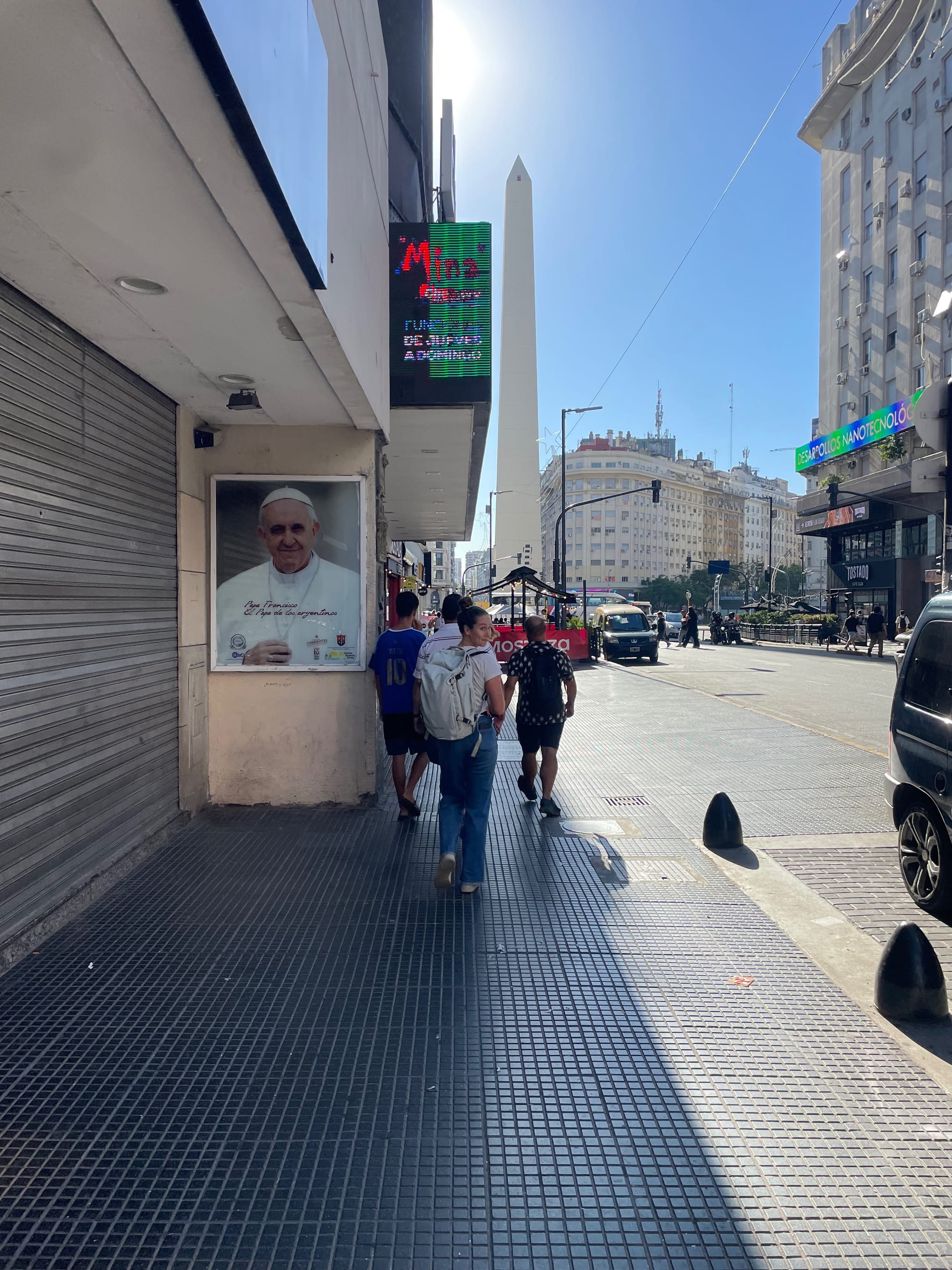
Buenos Aires.
1. Co-living
We have not stayed in a coliving in Buenos Aires. The concept of coliving in bigger cities is more complicated than in rural areas. While 9/10 online guides will have you book your stay in Palermo neighborhood, where all the tourists and expats and the remaining one will mention Belgrano, an affluent Argentine neighborhood - we stayed in Collegiales. Which is somewhere in between. Suppose you want to be able to walk the streets even on late late summer nights without fearing for your life, explore local coffee shops & bakeries, or have proximity to the citie's biggest parks. In that case, I highly recommend staying in this neighborhood. If nightlife and parties are what draw you to BsAs, then Palermo would probably be your choice.
Interestingly - the same time of my visit a first of BA workcation was being organized in the Capital Federal. Who knows, maybe these guys will come up with the right formula to set up coliving spaces in big cities.
While getting real data of nomads is very difficult, estimation is that BA is a home to over 70,000 digital nomads.
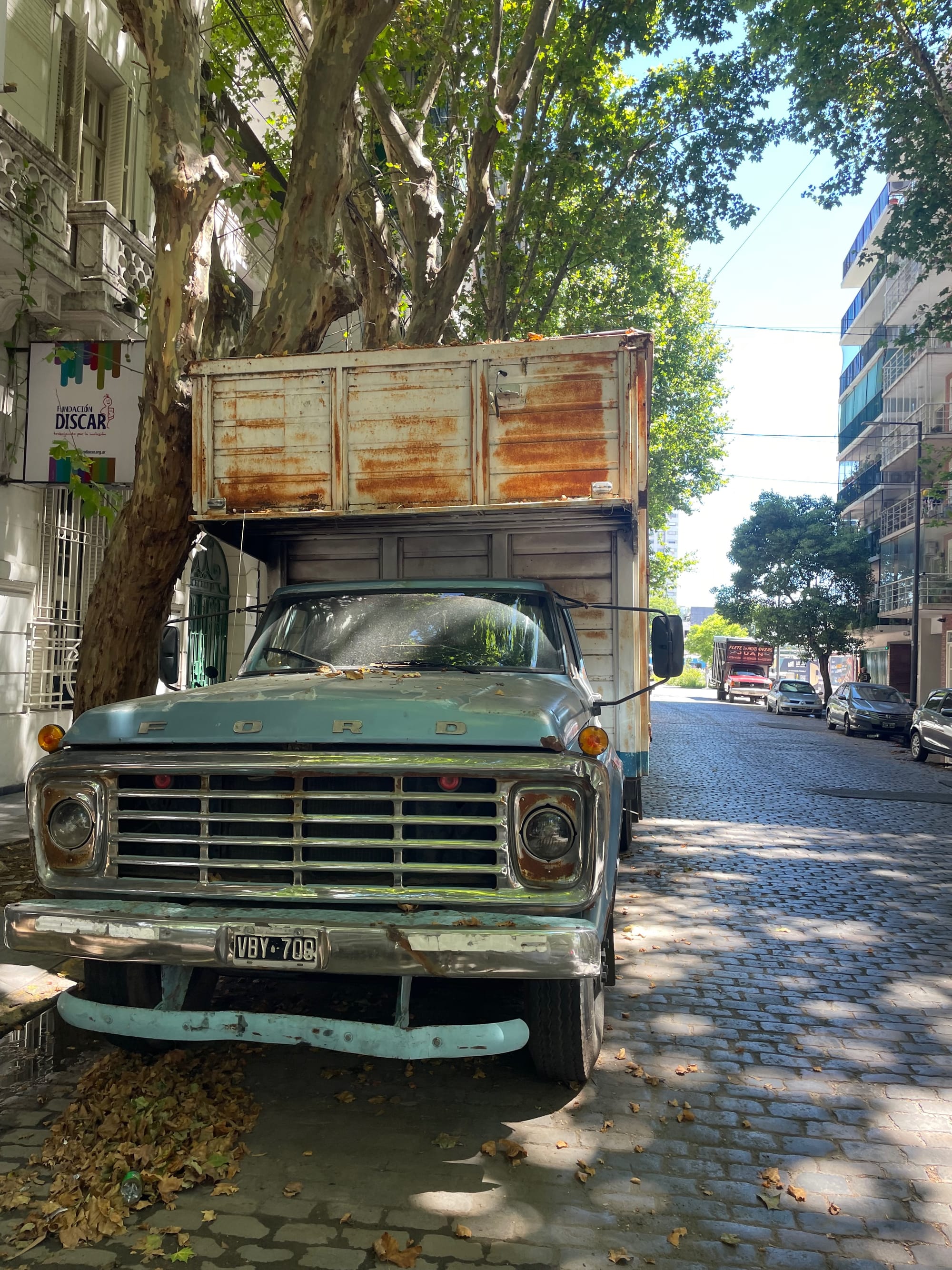
2. Co-working
Being a huge city with a massive amount of remote workers from all around the world - fair to say there is no shrotage of finding a reasonable coworking space, third space or as I like to call it "offices". What I loved about plenty of coffeeshops in Argentina is that they actually appreciate people working from their coffee shops - something I liked in Thailand or US but struggle to find in Portugal. Plenty of these spots offer lunch deals that make you stay longer in their space.
I have opted for a monthly membership at WeWork and enjoyed their location by Obelisco with an unreal view towards Uruguay, Rio de la Plata & the endless landscape of cuidad de Buenos Aires. I have also spent a fair amount of time in my local office - Cofi Jaus.
There are over 60 coworking spaces in Buenos Aires, with most of them located in Palermo or Microcentro.
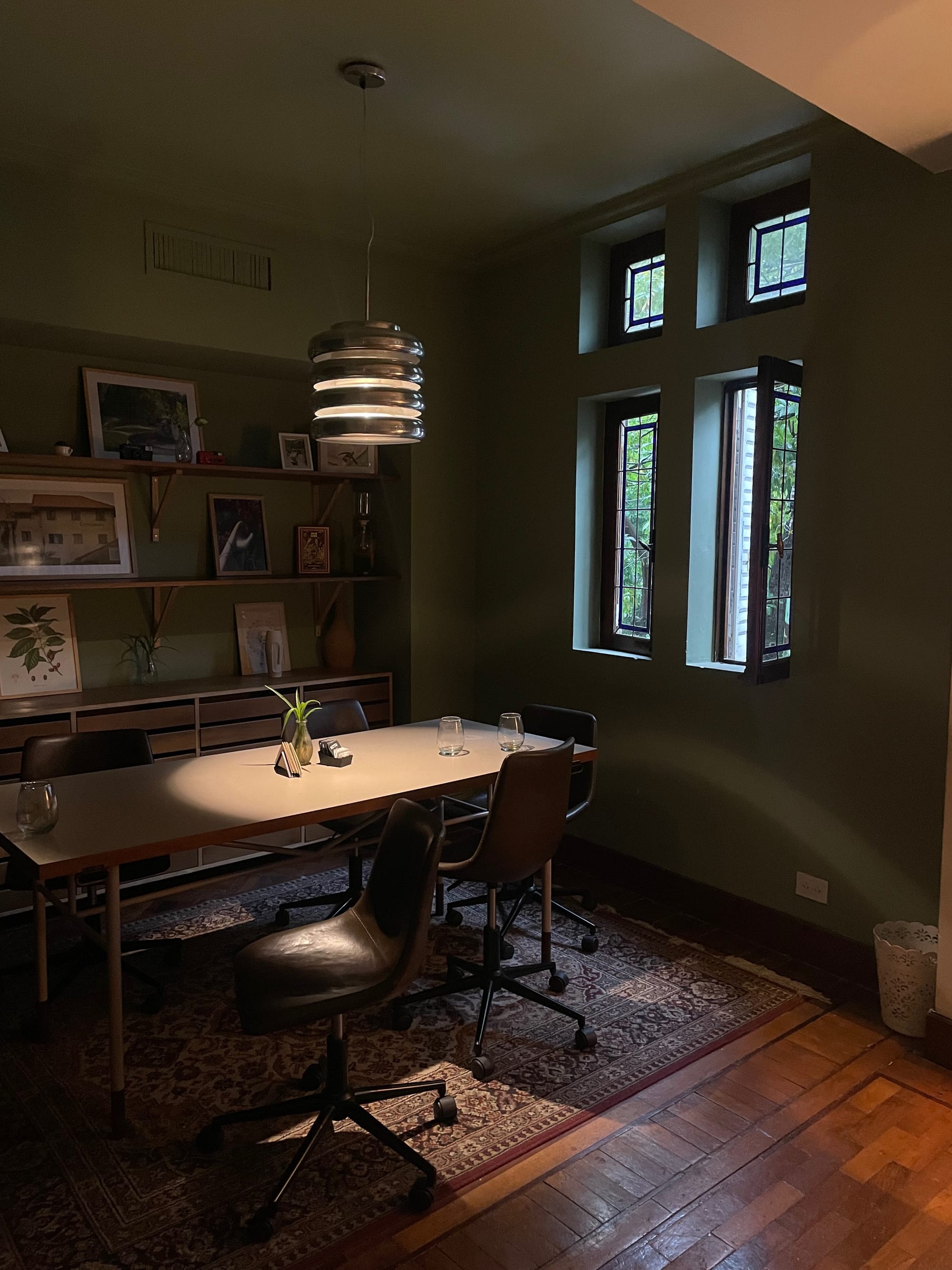
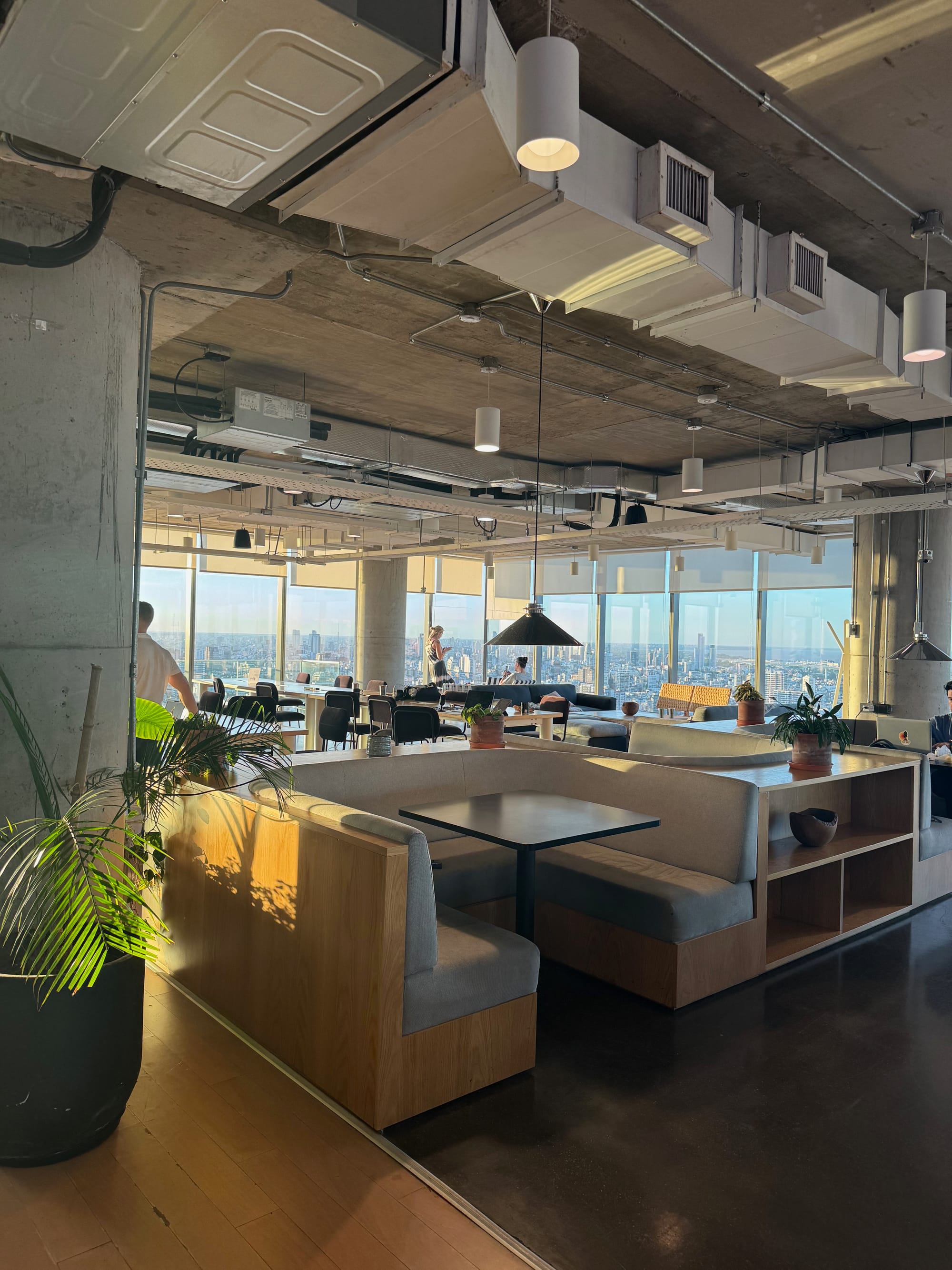
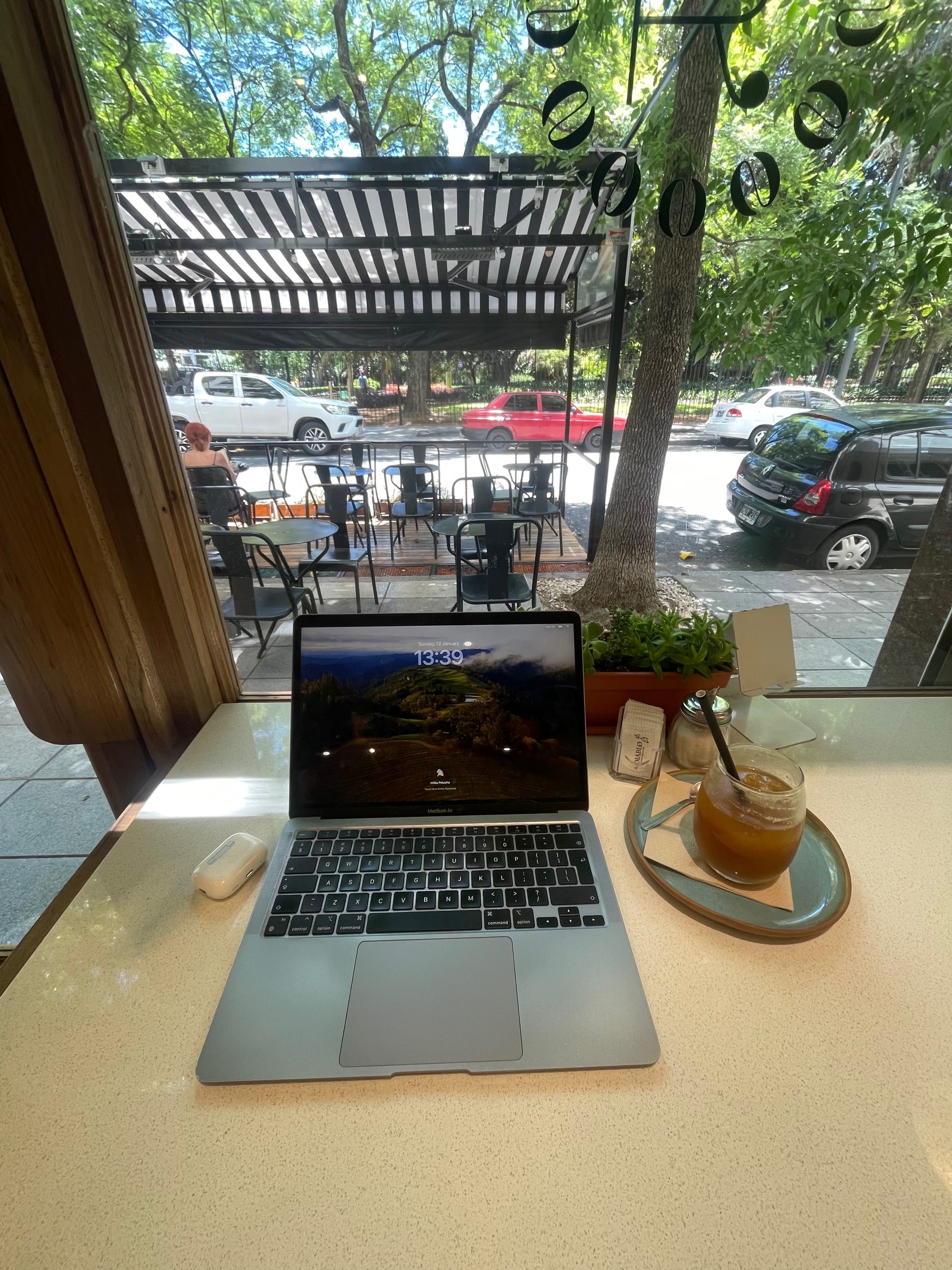
Working from Buenos Aires is easy & fun.
3. Community
Finding your tribe in Buenos Aires may (not) be so difficult. The local people are incredibly welcoming, used to foreigners, and very easy to get by. Whether you want to party, sport, or just hang out with them, the chances are you will make a great Argentine friend. For those looking to hang out with expats - get ready for a high amount of passport bros, geoarbitrage specialists, startup founders, and simply any type of personality:) They all came to Argentina for different reasons. Some of them took advantage of low living costs in the early 2020s, others for the possibility of obtaining Argentine citizenship after 2 years of residency - a law that has since been deleted due to overuse/abuse.
So, whether you are looking to improve your Spanish, learn Porteño, or expand your expat network, you will find it all in Buenos Aires.
4. Challenges
So, straight up, one thing I found challenging was the weather! Yes, January & February are the summer season in Argentina, but that brought crazy heat. That naturally made me less wanting to spend time outside of the AC-ed spaces throughout the day, and as a working traveller, having my evenings to spend outside did not quite feel enough. The amount of green spaces in the city though, was phenomenal. Especially when compared to some Asian metropolises. Not sure I've seen any large city having so many trees on the sides of almost every single street. As well as having so many large parks. That made it much easier to train my running with 4x a week practices.
I was dreaming of joining a 5-a-side game of football with some locals, but sadly never found the right contact to do so. At least, I got an opportunity to visit the incredible La Bombonera stadium, a home of Boca Juniors, one of the most legendary football establishments in the world.
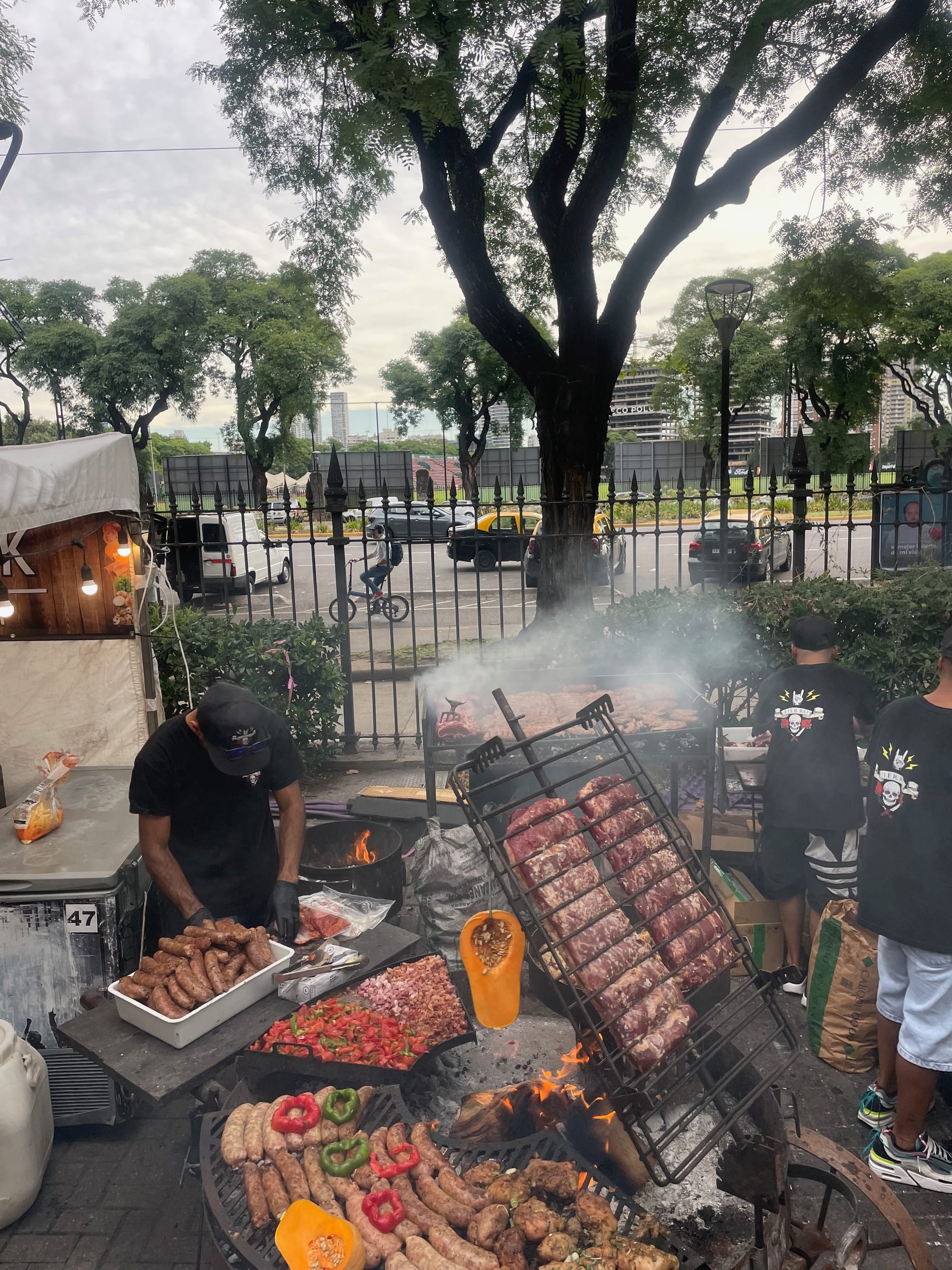
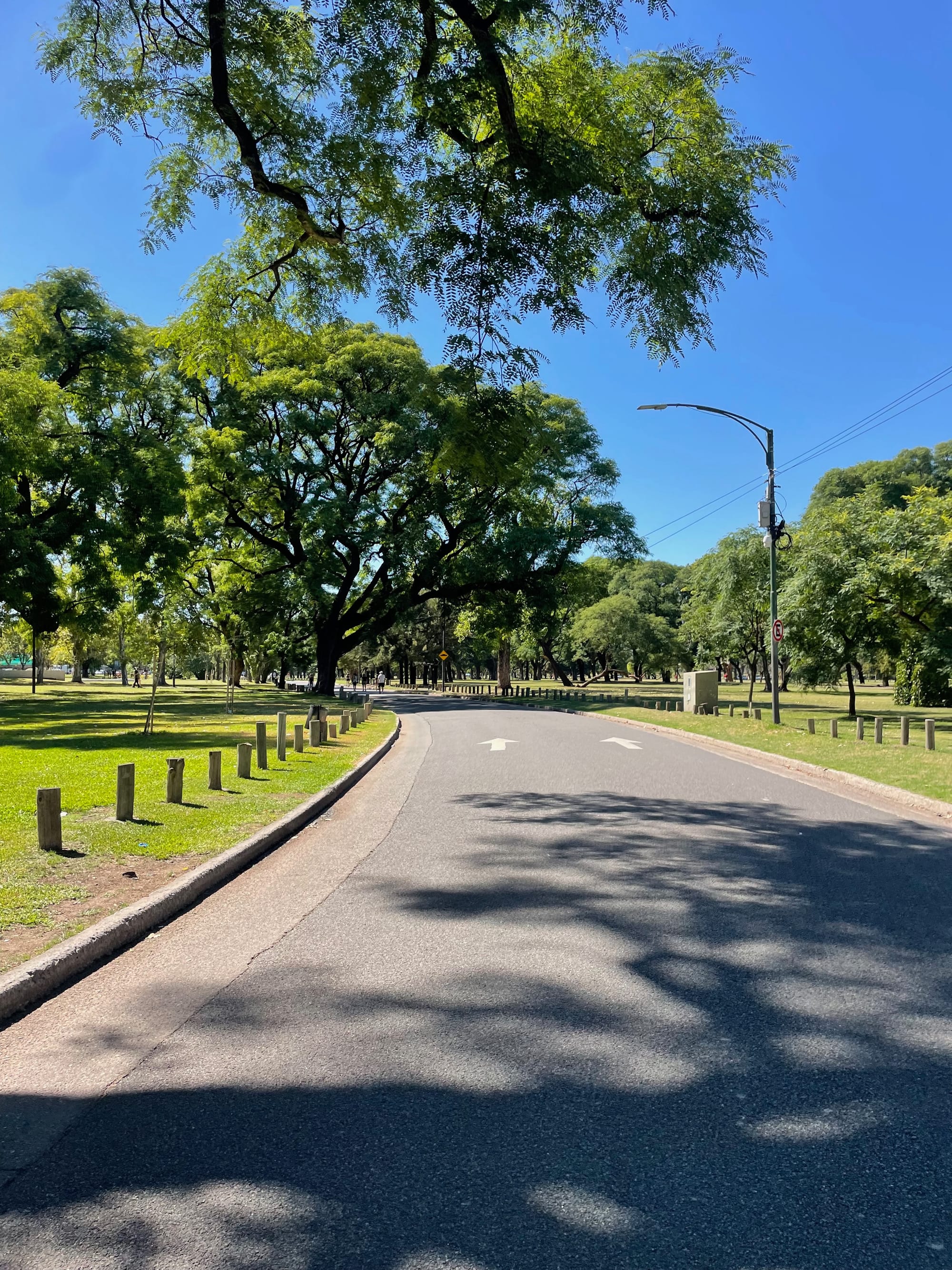

Outdoors in Buenos Aires.
5. Climate
As I have already suggested in the previous paragraph - I would not recommend you visiting BsAs in the summer. Yes, it's sunny and the rooftop parties, festivals etc are in full swing. But also, it's summer.
That means plenty of restaurants, coffee shops, bakeries, and organizations will be closed for a certain period. People might as well take their vacations! I'm generally a big fan and advocate of off-season travel and always prefer visiting places in a quieter season. It's not only beneficial for you as a traveller, as the prices are cheaper, the streets are less busy, and queues at bars are shorter. But it also brings more economic impact to whatever place you're visiting, as the seasonal dip in tourism truly is a huge problem.
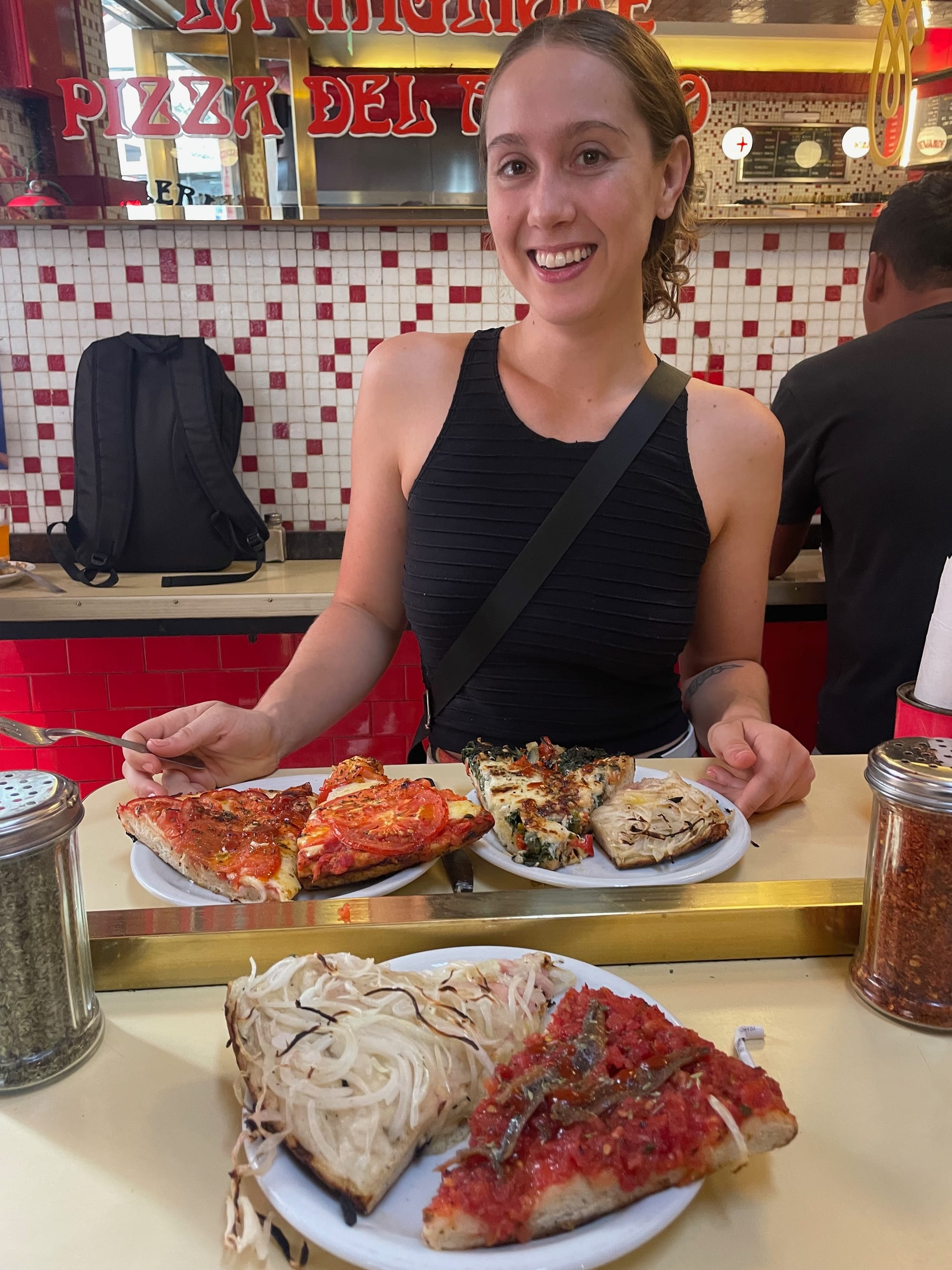
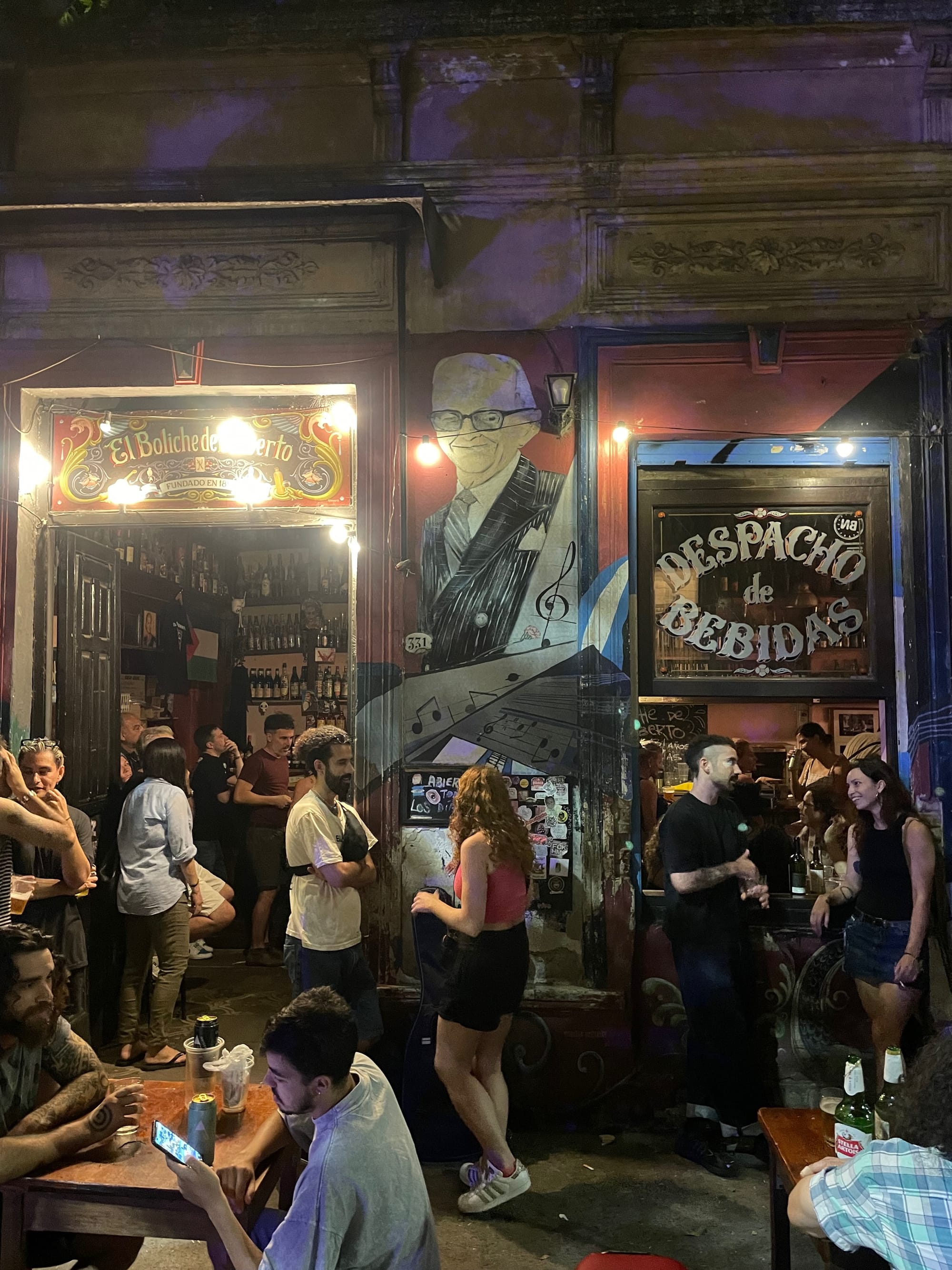
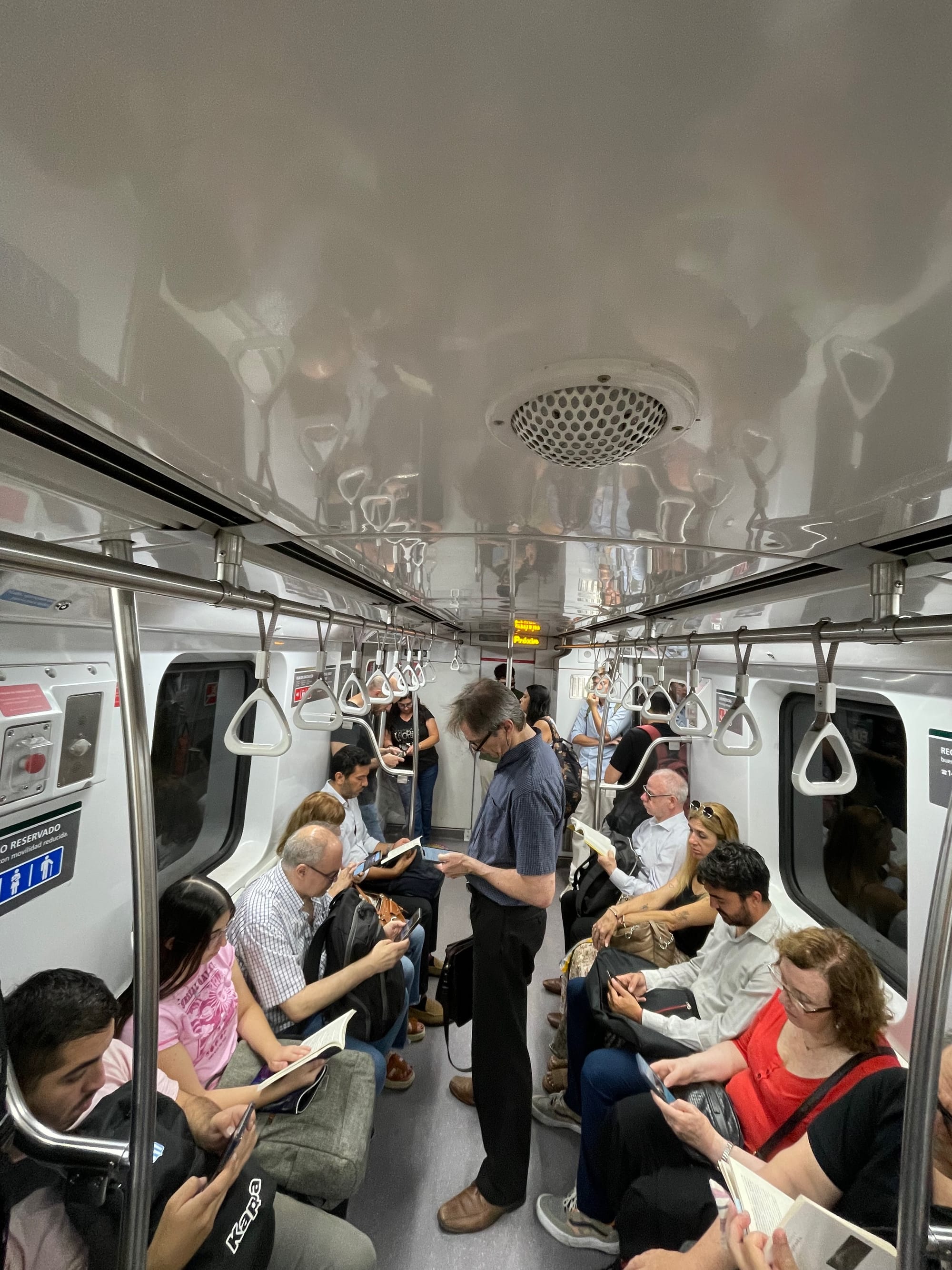
Buenos Aires and an argentine pizza
Conclusion
I do see why Buenos Aires is such an attractive place for both locals & visitors. It is a giant metropolis where plenty of opportunities lie on every corner. It's also a city with a rich history, amazing architecture, great walkability, and a reasonable public transport network. And although the Argentine cuisine was not my favorite, there are so many international food cuisines that it's hard not to find those you would enjoy. However, understand that in a current situation (writing in 2025) Argentina is battling the economic situation and the prices have gone significantly up, I would go as far as saying your living costs will be higher than in most of the European capitals. If you're looking for a place with more tranquility, access to the sea or mountains, Buenos Aires might not be the right fit for you.
But if you're looking to come to a relatively safe city, with very rich cultural scene, extremely hospitable,passionate local people and expats who feel at home - this may be your place. The big disadvantage for any European though - is the distance. It just really is incredibly far.
That just makes the stories of all those courageous immigrants from the late 19th and early 20th centuries more respectful.
Have you been to Buenos Aires? Let me know if your experience was any different from mine!

